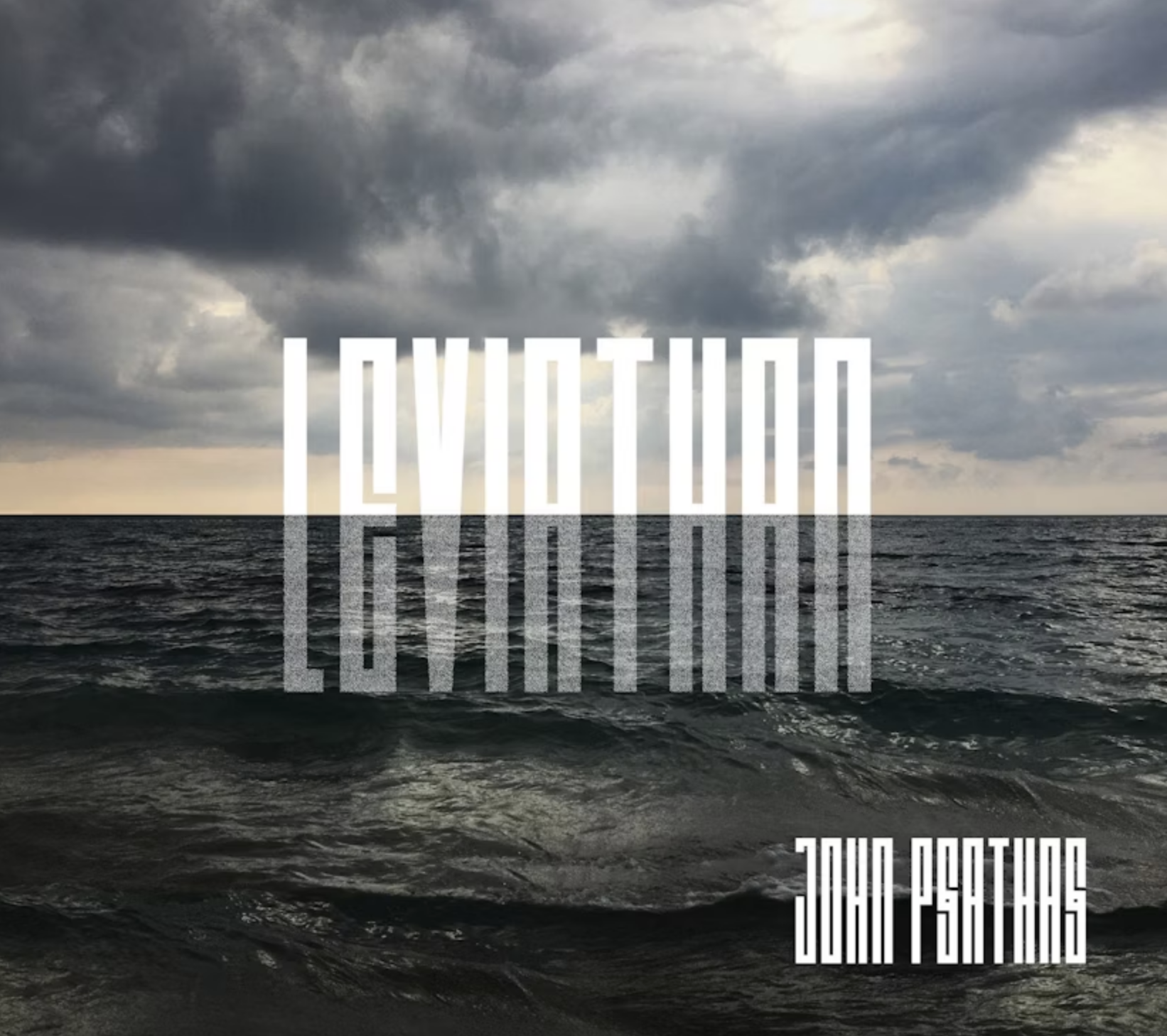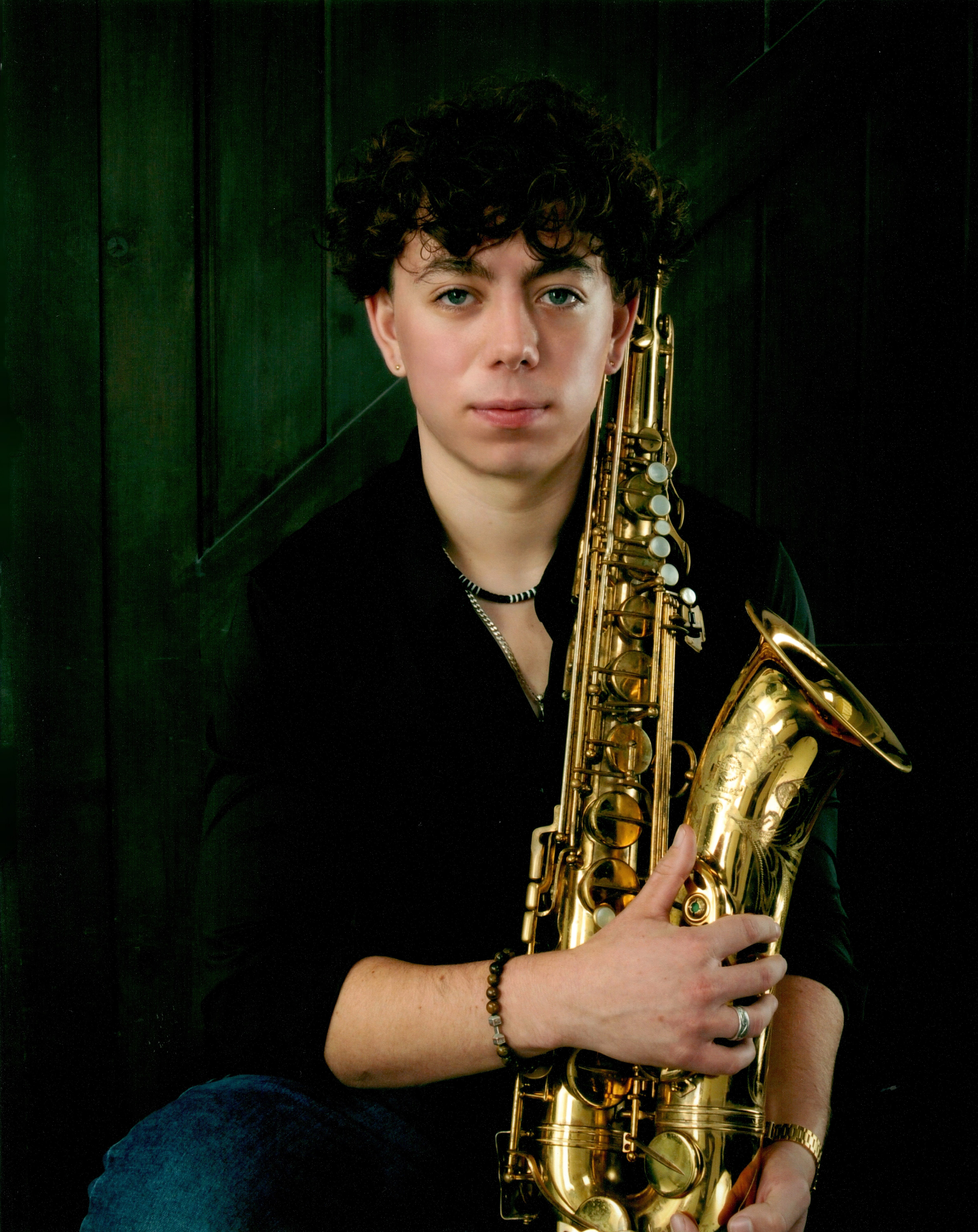
Call of the Wild (saxophone concerto) with Adam Page
Overview
The orchestral materials for this work can be hired from the composer. For enquiries go to Orchestral Hires
Co-written with Australian saxophonist Adam Page, Call of the Wild is a large-scale concerto for tenor saxophone and orchestra. Surprisingly, given Adam's prodigious improvising abilities, the soloist's part in this concerto is almost entirely notated.
The piece is in three parts:
I She Stands at the Edge of the Incomprehensible (11:30)
II He Can Worship It Without Believing It (7:00)
III Tramontane (6:45)
Call of the Wild is inspired by the last three generations of my family: all travellers and nomads. Every one of my grandparents and great-grandparents were survivors of the forced marches instigated by the exchange of populations between Greece and Turkey in the early 1920s. After resettling in Greece and enduring a second world war - followed immediately by an equally brutal civil war – their children (my parents) travelled unimaginably far away from that endless devastation and upheaval. From Athens and Thessaloniki, to Taumarunui.
The first movement (She Stands at the Edge of the Incomprehensible) is inspired by my mother, who always seemed to be on the verge of breaking out into a kind of greatness. Her long, slow decline into the fog of slowly forgetting is wholly outweighed in our memories by her positive, irresistible love of life.
The second movement (He Can Worship It Without Believing It) is inspired by my father, who lost his own father while still in the womb. Adopted out to a relative, and growing up an outsider to even his closest family, he demonstrated from the youngest age a staggering force of will to be independent, strong for others, and inflexible in his principles of decency and fairness. The price of living thus, especially in ones twilight years, can be devastating.
Growing up in small-town New Zealand, experiencing daily, normalized xenophobia and racism, as well as religious mistreatment, my sister and I understood at an early age what it meant to be tramontane (from the other side of the mountains); outsiders. Luckily, this experience empowered us to overcome; it energized us to fight for what we needed in life. The third movement of Call of the Wild (Tramontane) is a depiction of taking that nomadic gypsy impulse and energy further, who knows, even into space one day ...
With such continuous migration in our family's most recent century, is it any wonder our children are now hearing the call of the wild and talking of living abroad? Once the momentum starts, like a ball rolling downhill, it's near impossible to stop.
Listen to Orchestra Wellington's and Adam's recording of the concerto on Spotify:
The process of writing this with Adam involved me sending him MIDI demos of sections of the orchestral material I was developing, and then Adam going into a studio and creating vasts amounts of extraordinary, magical, and beautiful improvised material in response to the demos. I then worked with Adam's recordings; instead of creating a sequence of notes and rhythms, my building blocks were recorded phrases - some long, with their own internal development, others short fragments. It was an incredible way to work - I felt very privileged to have such rich musical resources. And as the uber musical nerd that I am, I dove deep into the detail, changing notes within phrases, adjusting micro-rhythms, splicing fragements of different phrases together. But even with all of that adjustment and alteration, it is Adam's luminous musical heart, spirit, and intelligence, that shines through in every bar of the saxophone part of this piece.
In the second movement there's a violin solo which is actually a transcription of a vocal line in No Man's Land sung by the incredible artist Oum.
The third movement is an adaptation of Rom in Space from Connectome
There are three passages of improvisation in this last movement.
Instrumentation
Orchestra:
2 Flutes (both dbl. Picc.)
2 Oboes (2. dbl. Cor Angl.)
2 Bb Clarinets (2. dbl. Bass Clar.)
2 Bassoons (2. dbl. Contra.)
4 Horns
3 C Trumpets (1. dbl. Piccolo Tpt)
2 Trombones
Bass Trombone
Tuba
4 Percussion (see below)
Timpani
Solo Saxophone (amplification advised)
Strings
Percussion Section:
Player 1: Mvmt 1: Bendir (amplified) or Djembe (not amplified) Mvmt 2: Vibraphone Mvmt 3: Hi-Hat, Drum Set
Player 2: Mvmt 1: Taiko drum Mvmt 2: Vibraphone Mvmt 3: Snare, 4 Tom-Toms, Crash cymbals (2 or 3)
Player 3: Mvmt 1: Hi-Hat station, Tam-Tam, Tubular bell (1)Mvmt 2: Bass drum Mvmt 3: Bass drum, Kick drum (hand mallet)
Player 4: Mvmt 1: Vibraphone, Shekere (or Caxixis), Tam-Tam(Mvmt 2: tacet) Mvmt 3: Whip, Piatti, Susp. cymbal
Other Resources
Adam Page Interview with RNZ Concert
Article by Christchurch Symphony Orchestra
Interview with Orchestra Wellington
Review by Middle C

Commissioner: Orchestra Wellington and the Christchurch Symphony Orchestra
Premiered by Adam Page and Orchestra Wellington conducted by Marc Taddei on July 17, 2021 at the Michael Fowler Centre, Wellington, New Zealand












